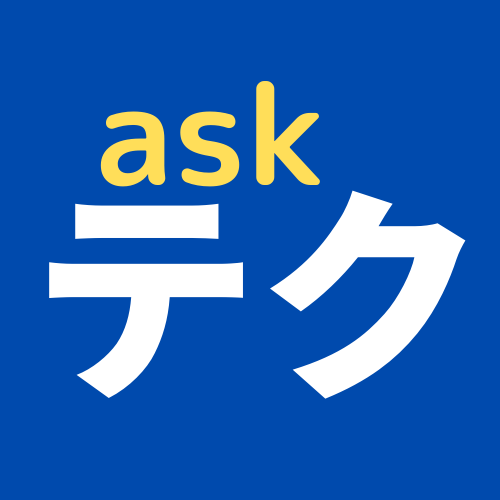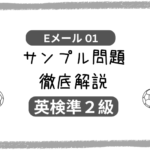このページでは英検準2級二次試験のスピーキング No.4 の形式の予想問題30問を3つの分野に分けて出題しますので、まずは力試しをしてください。
その後でサンプル回答&音源を確認し、使える表現などをチェックして、本番試験に備えましょう。
目次
スピーキングNo.4 予想問題30問
英検準2級スピーキングで出題されそうな質問を30問集めました。まずはサンプル回答を見ずに、1番から順番に「ぱやっ」とスピーキングチャレンジしてみましょう。
すんなりと答えられなかった質問のメモをとっておき、あとからサンプル回答で確認しておくのがおすすめです。
1. 日常生活・ライフスタイル
- Do you think animals are friendly to humans?
- Do you think high school students should have a part-time job?
- Do you think people should eat breakfast every morning?
- Do you think people should eat at home?
- Do you think more people will buy clothes on the Internet in the future?
- Do you think more people will use cash in the future?
- Do you think people will spend more money on their hobbies in the future?
- Do you think people should exercise every day?
- Do you think Japanese people will spend more time at work in the future?
- Do you think high school students should take their textbooks home every day?
2. 技術・社会
- Do you think technology makes our lives better?
- Do you think students should use tablet PCs in school?
- Do you think robots will be more common in the future?
- Do you think convenience stores should open twenty-four hours a day?
- Do you think people will use the Internet more in the future?
- Do you think traveling by airplane is better than traveling by train?
- Do you think it is important for students to study in schools?
- Do you think it is a good idea to exercise while listening to music?
- Do you think schools should have more computers for students?
- Do you think virtual reality will be used more in education in the future?
3. 環境・社会問題
- Do you think there should be more green spaces in cities?
- Do you think more people will use solar energy in the future?
- Do you think it is important to reduce plastic waste?
- Do you think recycling is important for the environment?
- Do you think people should use public transportation more often?
- Do you think we will see more electric cars in the future?
- Do you think it is a good idea to reduce car usage in cities?
- Do you think climate change will affect our daily lives more in the future?
- Do you think it is important for people to conserve water?
- Do you think planting more trees is good for the environment?
サンプル回答&音源
続いてサンプル回答と音源を確認しておきましょう。英検準2級二次試験では、より幅広い分野から質問されるので、十分な対策期間と練習量を持ちましょう。
各予想問題に対するシンプルな解答を2パターンずつ表示しますので必ず音読しておきましょう。スピーキング練習は「黙読」だけではなく、実際に「発話」することが重要です。
日常生活・ライフスタイル
1. Do you think having pets can improve people’s mental health?
- Answer 1: Yes, having pets can reduce stress and provide emotional support.
日本語訳: はい、ペットを飼うことでストレスが軽減され、感情的な支えを得られます。 - Answer 2: No, some people might find it stressful to take care of pets.
日本語訳: いいえ、ペットの世話をすることがストレスになる人もいます。
解説:
“reduce stress” と “provide emotional support” は、ペットの精神的健康への利点を説明しています。”stressful to take care of pets” で、ペットの世話が負担になる可能性を指摘しています。
【2文バージョン】
- Yes, I think animals are generally friendly to humans. They often build strong bonds with people.
- (はい、動物は人間に友好的だと思います。彼らはしばしば人々と強い絆を築きます。)
- No, I don’t think animals are always friendly to humans. Some animals can be dangerous.
- (いいえ、動物はいつも人間に友好的ではないと思います。危険な動物もいます。)
2. Do you think high school students should have a part-time job?
- Answer 1: Yes, part-time jobs teach students responsibility and time management.
日本語訳: はい、アルバイトは生徒に責任感や時間管理を教えてくれます。 - Answer 2: No, they should focus on their studies instead of working.
日本語訳: いいえ、勉強に集中すべきで、働くべきではありません。
解説:
“responsibility” と “time management” は、アルバイトの利点を示す際に使用される一般的な語彙です。”focus on their studies” もよく使われる表現です。
いずれも英検準2級のスピーキング対策では必須表現なのでしっかり覚えておきましょう。
【2文バージョン】
- Yes, high school students should have part-time jobs. It teaches them responsibility and time management.
- (はい、高校生はアルバイトをすべきだと思います。責任感と時間管理を学べます。)
- No, high school students should focus on their studies. Working might distract them from their schoolwork.
- (いいえ、高校生は勉強に集中すべきだと思います。アルバイトは学業の妨げになるかもしれません。)
3. Do you think people should eat breakfast every morning?
- Answer 1: Yes, breakfast gives people the energy they need for the day.
日本語訳: はい、朝食は一日のエネルギーを与えます。 - Answer 2: No, some people don’t feel hungry in the morning.
日本語訳: いいえ、朝はお腹が空かない人もいます。
解説:
“gives people energy” は、朝食の重要性を説明する際に使用される表現です。 “don’t feel hungry” は、朝食を抜く理由を示すための自然な表現です。
【2文バージョン】
- Yes, people should eat breakfast every morning. It gives energy for the day and helps concentration.
- (はい、人々は毎朝朝食を食べるべきだと思います。それは一日のエネルギーを与え、集中力を高めます。)
- No, not everyone needs to eat breakfast. Some people feel fine without it.
- (いいえ、全員が朝食を食べる必要はないと思います。朝食なしで元気な人もいます。)
4. Do you think people should eat at home?
- Answer 1: Yes, eating at home is healthier and cheaper than eating out.
日本語訳: はい、家で食べる方が外食より健康的で安いです。 - Answer 2: No, it’s fun to eat out sometimes for a change.
日本語訳: いいえ、たまに気分転換に外食するのは楽しいです。
解説:
“healthier and cheaper” は家で食事をする利点を簡潔に示す語彙で、いずれも比較級を使う事で外食との対比を表せます。今回のサンプル回答以外にも、基本的な比較級は言えるように準備しておきましょう。”for a change” は気分転換を意味する表現です。
【2文バージョン】
- Yes, eating at home is healthier and cheaper. You can control what ingredients are used.
- (はい、家で食べる方が健康的で安上がりです。使う材料を管理できます。)
- No, eating out can be convenient and social. Many restaurants offer healthy options.
- (いいえ、外食は便利で社交的な場になります。多くのレストランが健康的なメニューを提供しています。)
5. Do you think more people will buy clothes on the Internet in the future?
- Answer 1: Yes, online shopping is convenient and offers more options.
日本語訳: はい、オンラインショッピングは便利で、選択肢が多いです。 - Answer 2: No, some people prefer to try clothes on before buying.
日本語訳: いいえ、購入前に服を試着するのを好む人もいます。
解説:
“offers more options” は、オンラインショッピングの魅力を強調しています。 “prefer to try clothes on” は、伝統的なショッピングのメリットを示しています。”prefer” は二次試験だけではなく、英作文でも便利な表現なので、本番でも使えるように準備しておきましょう。
【2文バージョン】
- Yes, more people will buy clothes on the Internet in the future. Online shopping is convenient and offers more variety. (はい、将来はもっと多くの人がインターネットで服を買うと思います。オンラインショッピングは便利で選択肢が多いです。)
- No, some people will still prefer to shop in stores. They want to try on clothes before buying. (いいえ、実際の店舗で買い物をしたい人もいるでしょう。購入前に試着したいのです。)
6. Do you think more people will use cash in the future?
- Answer 1: No, I think more people will use credit cards or mobile payments.
日本語訳: いいえ、より多くの人がクレジットカードやモバイル決済を使うと思います。 - Answer 2: Yes, some people still prefer using cash for small purchases.
日本語訳: はい、小さな買い物には現金を使うのを好む人もいます。
解説:
“credit cards or mobile payments” は、キャッシュレス社会への移行を示す表現です。 “small purchases” で現金利用の一部の理由を説明しています。英検準2級二次試験では、流行りのテクノロジーが出題される事がありますので、こちらのサンプル回答のキーワードをしっかり押さえておきましょう。
【2文バージョン】
- Yes, people will continue to use cash in the future. Some people feel safer using physical money.
- (はい、将来も現金を使う人はいるでしょう。物理的なお金を使う方が安心だと感じる人がいます。)
- No, more people will use digital payments in the future. It’s faster and more convenient.
- (いいえ、将来的にはデジタル決済を使う人が増えるでしょう。より早くて便利だからです。)
7. Do you think people will spend more money on their hobbies in the future?
- Answer 1: Yes, as people have more free time, they will spend more on hobbies.
日本語訳: はい、自由時間が増えるにつれて、趣味にもっとお金を使うでしょう。 - Answer 2: No, people may choose to save money instead of spending it on hobbies.
日本語訳: いいえ、人々は趣味にお金を使う代わりに、貯金を選ぶかもしれません。
解説:
“spend more on hobbies” と “choose to save money” は、将来の消費行動に関する異なる予測を示しています。
【2文バージョン】
- Yes, people will spend more money on their hobbies in the future. As incomes rise, people can afford more leisure activities.
- (はい、将来人々は趣味にもっとお金を使うと思います。収入が増えると、余暇活動にお金を使う余裕が出てきます。)
- No, people will prioritize saving money over spending on hobbies. The cost of living is rising.
- (いいえ、人々は趣味にお金を使うより、貯蓄を優先するでしょう。生活費が高くなっているからです。)
8. Do you think people should exercise every day?
- Answer 1: Yes, daily exercise is important for staying healthy.
日本語訳: はい、毎日の運動は健康を維持するために重要です。 - Answer 2: No, resting sometimes is also important to avoid injury.
日本語訳: いいえ、ケガを防ぐために時々休むことも重要です。
解説:
“staying healthy” は運動の利点を強調しています。”resting sometimes” で、適度な休息の必要性を説明しています。
【2文バージョン】
- Yes, people should exercise every day to stay healthy. It improves both physical and mental well-being.
- (はい、健康を維持するために毎日運動をするべきです。体と心の両方の健康が改善されます。)
- No, not everyone needs to exercise every day. Some people have busy schedules or health conditions.
- (いいえ、全員が毎日運動する必要はないと思います。忙しい人や健康問題を抱える人もいます。)
9. Do you think Japanese people will spend more time at work in the future?
- Answer 1: No, I think people will try to focus more on work-life balance.
日本語訳: いいえ、今後は仕事と生活のバランスにもっと重点を置くと思います。 - Answer 2: Yes, because work may become more competitive in the future.
日本語訳: はい、将来的に仕事がますます競争的になるかもしれないからです。
解説:
“focus more on work-life balance” と “more competitive” は、それぞれ異なる将来の働き方を説明しています。こちらも、比較級が効果的に使われていますね。
【2文バージョン】
- Yes, Japanese people will spend more time at work in the future. The work culture in Japan encourages long hours.
- (はい、日本人は将来もっと働く時間が増えると思います。日本の労働文化は長時間労働を奨励しています。)
- No, I think work-life balance will improve in the future. More companies are encouraging flexible hours.
- (いいえ、将来的にはワークライフバランスが改善されると思います。多くの企業が柔軟な働き方を推奨しています。)
10. Do you think high school students should take their textbooks home every day?
- Answer 1: Yes, they need to review what they learned in class.
日本語訳: はい、彼らは授業で学んだことを復習する必要があります。 - Answer 2: No, textbooks are too heavy to carry every day.
日本語訳: いいえ、教科書は毎日持ち運ぶには重すぎます。
解説:
“review what they learned” で復習の重要性を示しています。”too heavy to carry” で現実的な問題を説明しています。文法はシンプルですが、スピーキング試験でもスラスラと言えるように、何度も口を慣らしておきましょう。
【2文バージョン】
- Yes, high school students should take their textbooks home every day. It helps them study better at home.
- (はい、高校生は毎日教科書を家に持ち帰るべきだと思います。自宅での勉強がより良くなります。)
- No, they don’t need to take textbooks home every day. Some days they can study without them.
- (いいえ、毎日教科書を持ち帰る必要はないと思います。教科書なしで勉強できる日もあります。)
技術・社会
11. Do you think technology makes our lives better?
- Answer 1: Yes, technology helps us do things more quickly and efficiently.
日本語訳: はい、技術は物事をより迅速かつ効率的に行うのに役立ちます。 - Answer 2: No, technology can also make people too dependent on machines.
日本語訳: いいえ、技術は人々を機械に依存させすぎることもあります。
解説:
“quickly and efficiently” で、技術の利点を表現しています。”too dependent on machines” で技術のデメリットを示しています。
【2文バージョン】
- Yes, technology makes our lives better. It provides convenience and connects people globally.
- (はい、技術は私たちの生活をより良くしていると思います。それは便利さを提供し、世界中の人々を繋げます。)
- No, technology has also made life more complicated. People can become too dependent on it.
- (いいえ、技術は生活を複雑にしている部分もあります。人々はそれに依存しすぎることがあります。)
12. Do you think students should use tablet PCs in school?
- Answer 1: Yes, tablets can make learning more interactive and fun.
日本語訳: はい、タブレットは学習をよりインタラクティブで楽しいものにします。 - Answer 2: No, too much screen time is not good for students’ health.
日本語訳: いいえ、画面を見る時間が長すぎると生徒の健康に良くありません。
解説:
“interactive and fun” で技術の教育的利点を示しています。”too much screen time” で健康面の懸念を説明しています。
【2文バージョン】
- Yes, students should use tablet PCs in school. They are interactive and make learning more engaging. (はい、生徒は学校でタブレットPCを使うべきだと思います。インタラクティブで学習がより楽しくなります。)
- No, students should use traditional books. Paper materials can help focus better without distractions. (いいえ、生徒は従来の本を使うべきだと思います。紙の教材は気を散らすことなく、集中力を高めます。)
13. Do you think robots will be more common in the future?
- Answer 1: Yes, robots can help with many tasks, especially in factories.
日本語訳: はい、ロボットは多くの作業を手助けでき、特に工場で役立ちます。 - Answer 2: No, some people may not trust robots to do important work.
日本語訳: いいえ、重要な仕事をロボットに任せることを信頼しない人もいるでしょう。
解説:
“help with many tasks” でロボットの利便性を示し、 “not trust robots” で懸念点を説明しています。
【2文バージョン】
- Yes, robots will be more common in the future. They can help with many tasks, making life easier.
- (はい、将来的にロボットはもっと一般的になるでしょう。多くの作業を手助けし、生活を楽にします。)
- No, robots won’t replace human workers completely. People prefer human interaction for many services.
- (いいえ、ロボットが完全に人間の労働者を置き換えることはないと思います。多くのサービスで人々は人間のやりとりを好みます。)
14. Do you think convenience stores should open twenty-four hours a day?
- Answer 1: Yes, it’s helpful for people who work late or need something at night.
日本語訳: はい、遅くまで働く人や夜に何かが必要な人にとって便利です。 - Answer 2: No, employees need time to rest, so stores should close at night.
日本語訳: いいえ、従業員には休む時間が必要なので、店は夜は閉めるべきです。
解説:
“helpful for people who work late” で24時間営業の利点を説明し、”employees need time to rest” で反対意見を補足しています。
【2文バージョン】
- Yes, convenience stores should open twenty-four hours a day. People need access to food and supplies at all times.
- (はい、コンビニエンスストアは24時間営業すべきです。人々はいつでも食料や用品を手に入れる必要があります。)
- No, convenience stores don’t need to be open 24 hours. It would reduce energy consumption and save costs.
- (いいえ、コンビニエンスストアが24時間営業である必要はありません。エネルギー消費を減らし、コストを節約できます。)
15. Do you think people will use the Internet more in the future?
- Answer 1: Yes, the Internet is becoming more important in everyday life.
日本語訳: はい、インターネットは日常生活でますます重要になっています。 - Answer 2: No, some people may start to limit their screen time for health reasons.
日本語訳: いいえ、健康上の理由から画面を見る時間を制限する人も出てくるでしょう。
解説:
“becoming more important” でインターネットの普及を説明し、”limit their screen time” で制限する理由を示しています。”screen time”を準2級面接本番で言えるとカッコいいですね。
【2文バージョン】
- Yes, more people will use the Internet in the future. The Internet is becoming an essential part of daily life. (はい、将来的にもっと多くの人がインターネットを利用するでしょう。インターネットは日常生活の重要な一部になっています。)
- No, some people will limit their use of the Internet. They prefer spending time offline to relax. (いいえ、インターネットの利用を制限する人もいるでしょう。リラックスのためにオフラインで過ごすことを好みます。)
16. Do you think traveling by airplane is better than traveling by train?
- Answer 1: Yes, airplanes are much faster, especially for long distances.
日本語訳: はい、特に長距離では飛行機の方がはるかに速いです。 - Answer 2: No, trains are more comfortable and better for the environment.
日本語訳: いいえ、電車の方が快適で、環境にも優しいです。
解説:
“faster” と “more comfortable” でそれぞれの移動手段の長所を簡潔に説明しています。
【2文バージョン】
- Yes, traveling by airplane is better than traveling by train. Airplanes are faster and more convenient for long distances.
- (はい、飛行機での移動は電車での移動よりも良いと思います。飛行機は長距離移動において、より速くて便利です。)
- No, traveling by train is more relaxing and environmentally friendly. It also offers more scenic views.
- (いいえ、電車での移動の方がリラックスでき、環境にも優しいです。さらに、景色も楽しめます。)
17. Do you think it is important for students to study in schools?
- Answer 1: Yes, schools provide a structured environment for learning.
日本語訳: はい、学校は学習のための体系的な環境を提供します。 - Answer 2: No, some students learn better at home or in different settings.
日本語訳: いいえ、自宅や別の環境でより良く学ぶ生徒もいます。
解説:
“structured environment” で学校の利点を説明し、”learn better at home” で代替案を提示しています。
【2文バージョン】
- Yes, it is important for students to study in schools. Schools provide a structured environment for learning.
- (はい、学校で勉強することは大切です。学校は学習において構造化された環境を提供します。)
- No, students can learn well outside of school too. Online resources and home study are also effective.
- (いいえ、学校外でも生徒は十分に学べると思います。オンラインのリソースや自宅学習も効果的です。)
18. Do you think it is a good idea to exercise while listening to music?
- Answer 1: Yes, music can make exercise more enjoyable and motivating.
日本語訳: はい、音楽は運動をより楽しく、やる気を引き出してくれます。 - Answer 2: No, listening to music might distract people from exercising properly.
日本語訳: いいえ、音楽を聴くと正しく運動することから気が散るかもしれません。
解説:
“enjoyable and motivating” と “distract people” で、運動中の音楽のメリットとデメリットを示しています。
【2文バージョン】
- Yes, it is a good idea to exercise while listening to music. Music can make workouts more enjoyable and motivating.
- (はい、音楽を聴きながら運動するのは良い考えだと思います。音楽は運動をより楽しく、モチベーションを高めます。)
- No, listening to music while exercising can be distracting. It’s better to focus on your body’s movements.
- (いいえ、音楽を聴きながら運動すると気が散ることがあります。体の動きに集中する方が良いです。)
19. Do you think schools should have more computers for students?
- Answer 1: Yes, computers help students develop important digital skills.
日本語訳: はい、コンピューターは生徒が重要なデジタルスキルを身につけるのに役立ちます。 - Answer 2: No, students already spend too much time on screens outside of school.
日本語訳: いいえ、学校外で既に多くの時間を画面に費やしています。
解説:
“digital skills” でコンピュータ教育の重要性を示し、”spend too much time on screens” で過度のスクリーン時間を懸念しています。
【2文バージョン】
- Yes, schools should have more computers for students. Technology is an essential part of modern education.
- (はい、学校にはもっと多くのコンピュータが必要だと思います。技術は現代教育の重要な一部です。)
- No, schools don’t need more computers. Students should also learn without relying too much on technology.
- (いいえ、学校にもっとコンピュータを増やす必要はありません。生徒は技術に頼りすぎないで学ぶことも大切です。)
20. Do you think virtual reality will be used more in education in the future?
- Answer 1: Yes, virtual reality can make lessons more interactive and immersive.
日本語訳: はい、仮想現実は授業をよりインタラクティブで没入感のあるものにします。 - Answer 2: No, virtual reality is expensive and difficult for all schools to implement.
日本語訳: いいえ、仮想現実は高価で、すべての学校で導入するのは難しいです。
解説:
“interactive and immersive” で仮想現実の教育的利点を示し、”expensive and difficult” で技術の導入に伴う障害を説明しています。
【2文バージョン】
- Yes, virtual reality will be used more in education in the future. It offers immersive experiences that enhance learning.
- (はい、将来的に教育において仮想現実がより多く使われると思います。それは学習を強化する没入型の体験を提供します。)
- No, virtual reality won’t be used much in education. Traditional methods are still more effective for many subjects.
- (いいえ、仮想現実は教育においてあまり使われないでしょう。伝統的な方法の方が多くの科目で効果的です。)
環境・社会問題
21. Do you think there should be more green spaces in cities?
- Answer 1: Yes, green spaces improve air quality and provide areas for relaxation.
日本語訳: はい、緑地は空気の質を改善し、リラックスできる場所を提供します。 - Answer 2: No, cities need more space for housing and businesses.
日本語訳: いいえ、都市には住宅やビジネスのためのスペースがもっと必要です。
解説:
“improve air quality” で環境の利点を説明し、”need more space” で都市計画の観点を提示しています。
【2文バージョン】
- Yes, there should be more green spaces in cities. They improve air quality and provide places for relaxation.
- (はい、都市にはもっと緑地が必要だと思います。それは空気の質を改善し、リラックスできる場所を提供します。)
- No, cities don’t need more green spaces. Urban areas should focus on building more housing and infrastructure.
- (いいえ、都市にもっと緑地を増やす必要はないと思います。都市部は住宅やインフラの整備に集中すべきです。)
22. Do you think more people will use solar energy in the future?
- Answer 1: Yes, solar energy is renewable and environmentally friendly.
日本語訳: はい、太陽エネルギーは再生可能で環境に優しいです。 - Answer 2: No, solar panels are expensive and not everyone can afford them.
日本語訳: いいえ、太陽光パネルは高価で、全員が手に入れることはできません。
解説:
“renewable and environmentally friendly” で太陽エネルギーの利点を示し、”expensive” でその障害を説明しています。英検準2級で頻出の環境トピック関連の単語は、何度も発話して口を慣らしておきましょう。
【2文バージョン】
- Yes, more people will use solar energy in the future. It’s a clean and renewable source of power.
- (はい、将来もっと多くの人が太陽エネルギーを利用すると思います。これはクリーンで再生可能なエネルギー源です。)
- No, solar energy may not become widespread. It’s still expensive and depends on weather conditions.
- (いいえ、太陽エネルギーは普及しないかもしれません。まだ高価で、天候に依存しています。)
23. Do you think it is important to reduce plastic waste?
- Answer 1: Yes, plastic waste harms the environment and wildlife.
日本語訳: はい、プラスチックごみは環境や野生生物に害を及ぼします。 - Answer 2: No, plastic is convenient and difficult to replace in many situations.
日本語訳: いいえ、プラスチックは便利で、多くの場面で代替が難しいです。
解説:
“harms the environment and wildlife” で環境問題の影響を示し、”difficult to replace” で現実的な課題を説明しています。
【2文バージョン】
- Yes, it is important to reduce plastic waste. Plastic pollution harms the environment and wildlife.
- (はい、プラスチック廃棄物を減らすことは重要だと思います。プラスチック汚染は環境や野生生物に悪影響を与えます。)
- No, reducing plastic waste is not the most important issue. There are other environmental problems that need attention.
- (いいえ、プラスチック廃棄物を減らすことは最も重要な問題ではないと思います。他にも注目すべき環境問題があります。)
24. Do you think recycling is important for the environment?
- Answer 1: Yes, recycling reduces waste and conserves natural resources.
日本語訳: はい、リサイクルは廃棄物を減らし、天然資源を節約します。 - Answer 2: No, recycling is costly and not always effective.
日本語訳: いいえ、リサイクルは費用がかかり、必ずしも効果的ではありません。
解説:
“reduces waste and conserves resources” でリサイクルの利点を説明し、”costly and not effective” でそのデメリットを示しています。
【2文バージョン】
- Yes, recycling is important for the environment. It reduces waste and conserves natural resources.
- (はい、リサイクルは環境にとって重要です。廃棄物を減らし、天然資源を保護します。)
- No, recycling is not the most effective solution. Reducing consumption and reusing products are more impactful.
- (いいえ、リサイクルは最も効果的な解決策ではありません。消費を減らし、製品を再利用することの方が影響が大きいです。)
25. Do you think people should use public transportation more often?
- Answer 1: Yes, it helps reduce traffic and pollution in cities.
日本語訳: はい、都市での交通渋滞と汚染を減らすのに役立ちます。 - Answer 2: No, public transportation is not convenient for everyone.
日本語訳: いいえ、公共交通機関はすべての人にとって便利ではありません。
解説:
“reduce traffic and pollution” で公共交通の環境的利点を示し、”not convenient for everyone” で利用の難しさを表現しています。
【2文バージョン】
- Yes, people should use public transportation more often. It helps reduce traffic and lowers carbon emissions.
- (はい、人々はもっと公共交通機関を利用すべきだと思います。これにより交通量が減り、二酸化炭素の排出が減ります。)
- No, public transportation is not always convenient for everyone. Some people need personal vehicles for their lifestyle.
- (いいえ、公共交通機関は必ずしも全員にとって便利ではありません。個人の生活スタイルには自家用車が必要な人もいます。)
26. Do you think we will see more electric cars in the future?
- Answer 1: Yes, electric cars are better for the environment and becoming more affordable.
- 日本語訳: はい、電気自動車は環境に優しく、価格も手頃になりつつあります。
- Answer 2: No, electric cars are still too expensive for many people.
日本語訳: いいえ、電気自動車はまだ多くの人にとって高価すぎます。
解説:
“better for the environment” で電気自動車の環境的利点を説明し、”too expensive” で経済的な課題を指摘しています。
【2文バージョン】
- Yes, we will see more electric cars in the future. Electric vehicles are becoming more affordable and popular.
- (はい、将来的にもっと多くの電気自動車が普及すると思います。電気自動車は手頃で人気が高まっています。)
- No, electric cars may not become mainstream soon. The infrastructure for charging is still insufficient.
- (いいえ、電気自動車がすぐに主流になることはないと思います。充電インフラがまだ不十分です。)
27. Do you think it is a good idea to reduce car usage in cities?
- Answer 1: Yes, reducing car usage can help lower pollution and traffic congestion.
日本語訳: はい、車の使用を減らすことで、汚染と交通渋滞を軽減できます。 - Answer 2: No, many people rely on cars for transportation in cities.
日本語訳: いいえ、都市では多くの人が車に依存しています。
解説:
“lower pollution and traffic” で都市環境の改善を示し、”rely on cars” で車の必要性を説明しています。
【2文バージョン】
- Yes, reducing car usage in cities is a good idea. It can decrease pollution and make cities more livable.
- (はい、都市での車の使用を減らすのは良いアイデアだと思います。それは汚染を減らし、都市をより住みやすくします。)
- No, reducing car usage would inconvenience many people. Cars are essential for commuting and daily life.
- (いいえ、車の使用を減らすと多くの人に不便をもたらすでしょう。車は通勤や日常生活に不可欠です。)
28. Do you think climate change will affect our daily lives more in the future?
- Answer 1: Yes, we may experience more extreme weather events and rising sea levels.
日本語訳: はい、極端な気象現象や海面上昇が増えるかもしれません。 - Answer 2: No, I believe we will find solutions to control climate change.
日本語訳: いいえ、気候変動を制御する解決策を見つけると思います。
解説:
“extreme weather events” と “rising sea levels” で気候変動の影響を説明し、”find solutions” で楽観的な未来予測を表現しています。
【2文バージョン】
- Yes, climate change will affect our daily lives more in the future. We will see more extreme weather events.
- (はい、将来気候変動が私たちの日常生活にさらに影響を与えると思います。極端な天候が増えるでしょう。)
- No, I don’t think climate change will drastically affect our daily lives. Technology can help mitigate its effects.
- (いいえ、気候変動が私たちの日常生活に大きな影響を与えるとは思いません。技術がその影響を軽減するのに役立ちます。)
29. Do you think it is important for people to conserve water?
- Answer 1: Yes, water is a limited resource, so we should use it carefully.
日本語訳: はい、水は限られた資源なので、慎重に使うべきです。 - Answer 2: No, in some places, there is plenty of water, so it’s not a big issue.
日本語訳: いいえ、一部の地域では水が豊富なので、大きな問題ではありません。
解説:
“limited resource” で水の重要性を強調し、”plenty of water” で地域差を説明しています。
【2文バージョン】
- Yes, it is important for people to conserve water. Water is a limited resource that we all depend on.
- (はい、人々が水を節約することは重要だと思います。水は私たちが依存する限られた資源です。)
- No, in some regions, water conservation is not as important. They have abundant water supplies.
- (いいえ、一部の地域では、水の節約はそれほど重要ではありません。水資源が豊富です。)
30. Do you think planting more trees is good for the environment?
- Answer 1: Yes, trees absorb carbon dioxide and help fight climate change.
日本語訳: はい、木は二酸化炭素を吸収し、気候変動と戦うのに役立ちます。 - Answer 2: No, planting trees alone cannot solve all environmental problems.
日本語訳: いいえ、木を植えるだけではすべての環境問題を解決できません。
解説:
“absorb carbon dioxide” で木の環境への貢献を説明し、”solve all environmental problems” で過度の期待に対する警鐘を鳴らしています。”absorb” は英検準2級のスピーキングには少し難しい単語ですが、このような少し難しい単語をいくつかポケットに入れておくことで、高得点が狙えますので、戦略的に覚えておきましょう。
【2文バージョン】
- Yes, planting more trees is good for the environment. Trees absorb carbon dioxide and provide oxygen.
- (はい、木を植えることは環境に良いことだと思います。木は二酸化炭素を吸収し、酸素を供給します。)
- No, planting trees alone is not enough to protect the environment. We need to focus on reducing pollution.
- (いいえ、木を植えるだけでは環境を守るのに十分ではありません。汚染を減らすことに集中する必要があります。)
英検準2級のライティング(意見論述・Eメール)・面接対策の投稿記事リストはコチラ
英検準2級二次試験対策はask本校にお任せください。




